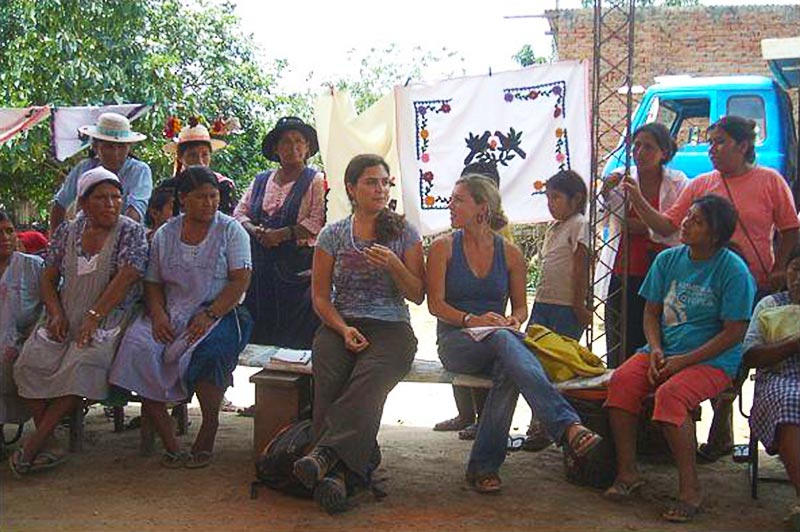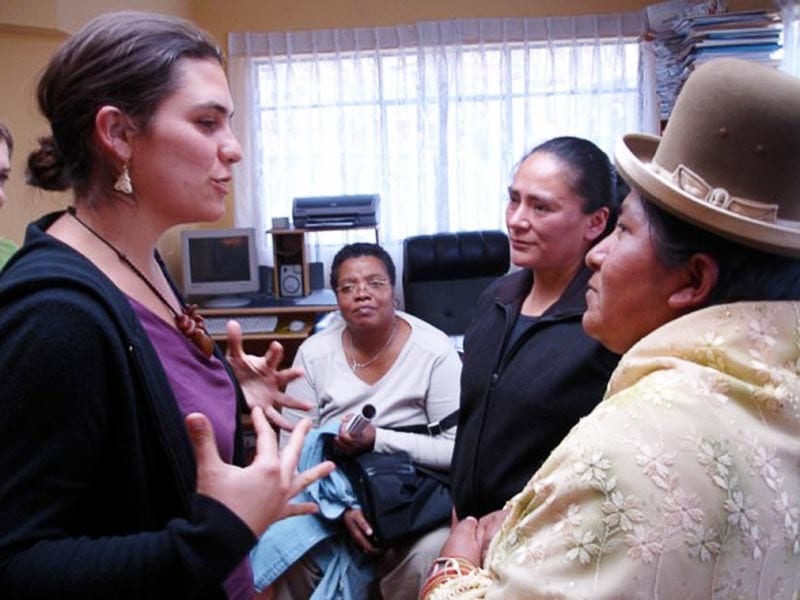Indigenous Women Taking Active Role in Bolivia’s Agriculture

WEA’s 2006 Transformative Advocacy Exchange in Bolivia
In Bolivia, women play a large role in the agriculture sector. They work to harvest crops, raise livestock and provide food for their families. The changing climate has impacts on the livelihoods of these women as unpredictable storms and irregular rainfall affect the productivity of their crops and security of their income and food.
For the last 10 years, Bolivia’s government and local NGOs have been focused on empowering women and creating decision-making space for them when it comes to adapting to these issues. NGOs have financed projects to empower women farmers, creating space for them in political contexts and empowering them to make changes in their communities.
Here is an excerpt from Al Jazeera’s photo story on women farmers in Bolivia. You can view the whole story here.
“Because of deep-rooted gender inequality, women are less informed, less valued by men and excluded from the decision-making process in the community, making them even more vulnerable.”

WEA’s 2006 Transformative Advocacy Exchange in Bolivia
In 2006, WEA partnered with Global Exchange on a Transformative Advocacy Exchange which led a team of women environmental attorneys on a journey through the regions of La Paz and Santa Cruz in Bolivia. Through this project, these advocates worked with indigenous and women-led organizations to encourage sustainable, indigenous-managed land use and agricultural practices, a necessary focus for agricultural communities as they face these irregular rainfall patterns, higher rates of erosion and inconsistent yields.
It is inspiring to continue to see the incredible skill and knowledge Indigenous women hold as they ensure and preserve their communities food security resources!
